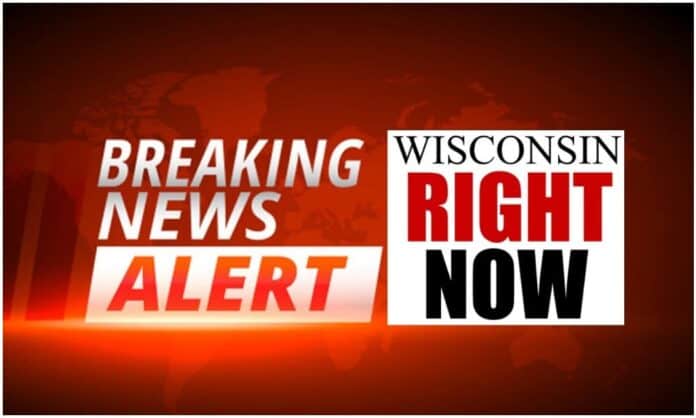(The Center Square) – President Donald Trump and former Vice President Joe Biden will meet for the second and final presidential debate at Belmont University in Nashville on Thursday night after nearly two years of preparation by the university and its partners.
Hosting a presidential debate requires tremendous effort and expense in a typical year, and health and security logistics during the COVID-19 pandemic have proved even more challenging. Belmont University President Bob Fisher, however, said efforts by the university and its partners will pay off.
“We’re anticipating a very positive impact for the university, and again for Nashville,” Fisher said. “It’s hard to know the economic benefits of something like this until it’s over, but what we saw in 2008 was a very positive impact.”
Preparations for Thursday’s debate began in the early months of 2019, as Belmont drafted its application for the Commission on Presidential Debates. Prospective venues are required to have a debate hall of at least 15,000 square feet, a large parking area for at least 40 satellite trucks for TV broadcasting, capacity for a media filing center of at least 20,000 square feet, adequate air and ground transportation and hotel capacity nearby to provide 3,000 rooms for the event.
Hosts also were required to make a $2 million financial contribution to the commission.
The commission announced Belmont as a debate host in October 2019, after receiving six applications from prospective venues.
“It’s pretty competitive,” Fisher said. “It was awarded, and we went to work with our plans, raising money to support all this. And then things changed a lot.”
This year, in addition to construction of a massive media filing center tent and platforms for broadcasters on the campus quad, organizing parking and support services, and coordinating security with local law enforcement and the secret service, a coordinated health and safety response to the COVID-19 pandemic was required.
Belmont partnered with HCA Healthcare to coordinate rapid COVID-19 testing for all credentialed media and temperature checkpoints at every facility entrance across campus. Members of the HCA Healthcare team travelled to Cleveland to observe practices and protocols for the Sept. 29 presidential debate.
“You can’t control what happens to you, but you can control how you respond to it,” Fisher said. “We stopped and thought, ‘Here’s an opportunity for us to be an even better partner to the presidential debate commission, and to step up to an even bigger challenge than we signed up for.’ ”
In return for the months of work and millions invested, Belmont University and Nashville will be catapulted into global media attention.
It’s not the first time Belmont has hosted a presidential debate. In 2008, then-U.S. Sens. Barack Obama and John McCain faced off in a townhall style debate moderated by NBC’s Tom Brokaw.
“2008 was a historic moment for Belmont and Nashville,” Butch Spyridon, executive director of the Nashville Convention and Visitor’s Bureau, said during a recent news conference. “It was a flawless presentation of all that is good about our city. … It all paid off in numerous ways.”
Fisher said hosting the 2008 debate resulted in significant positive media coverage and notable enrollment interest to the university. He expects a similar result this year, despite the challenges of COVID-19.
“Twelve years ago, Nashville certainly had a strong tourism business, but, boy, it’s just exploded, and we’re a little part of that,” Fisher said. “The debate, I think, opened the eyes of the world even more to what Nashville is who we are.”
According to Nielsen ratings, more than 63.2 million U.S. households tuned in to the 2008 debate at Belmont. Fisher said, with the evolution of streaming services, he anticipates even higher viewership for Thursday’s debate, which will be broadcast in 40 countries.
The day after the 2008 debate, a Belmont trustee who had been in New Delhi, India, sent Fisher three articles from the Hindu Times, New Delhi Times and the Times of India, Fisher recalled. Each one started out, “At Belmont University in Nashville.”
“I always joke and say I can get on the front page any day I want by doing something really bad, but it’s hard to get on the front page for doing something good,” Fisher said. “But I couldn’t even get on the front page in New Delhi for doing something bad. I’m not that bad. So that’s sort of the impact it made.”
Fisher said the university is proud to host a presidential exchange that will inform voters and contribute significantly to the democratic process.
“What I love about the debate is there’s this candidate and there’s this candidate, and people watch and listen and think and then decide what you think is best for this country,” Fisher said. “And then I have faith that it will be that that’s the thing, even if I don’t get my way, I believe this country is strong enough that it will not just survive, it will thrive.”
By Vivian Jones | The Center Square
Go to Source
Reposted with permission











![WATCH: Elon Musk Town Hall Rally in Green Bay [FULL Video]](https://www.wisconsinrightnow.com/wp-content/uploads/2022/04/Elon_Musk_3018710552-356x220.jpg)



![The Wisconsin DOJ’s ‘Unlawful’ Lawman [WRN Voices] josh kaul](https://www.wisconsinrightnow.com/wp-content/uploads/2025/03/MixCollage-29-Mar-2025-08-48-PM-2468-356x220.jpg)







![Phil Gramm’s Letter to Wall Street Journal [Up Against the Wall]](https://www.wisconsinrightnow.com/wp-content/uploads/2025/03/gramm-356x220.png)










